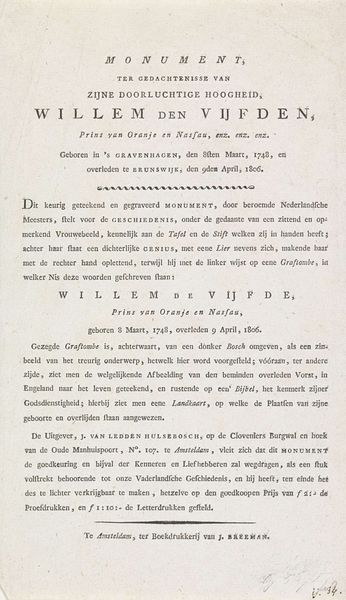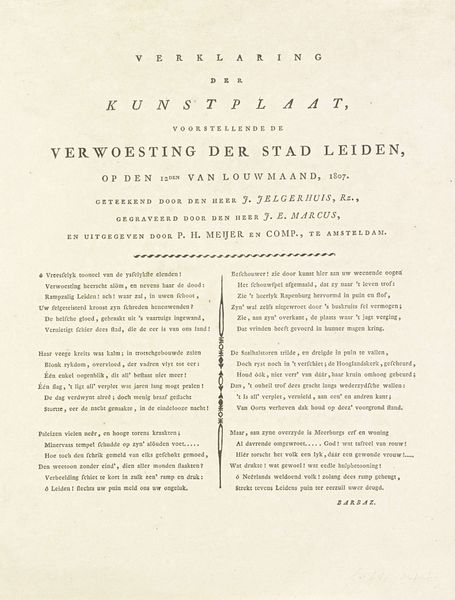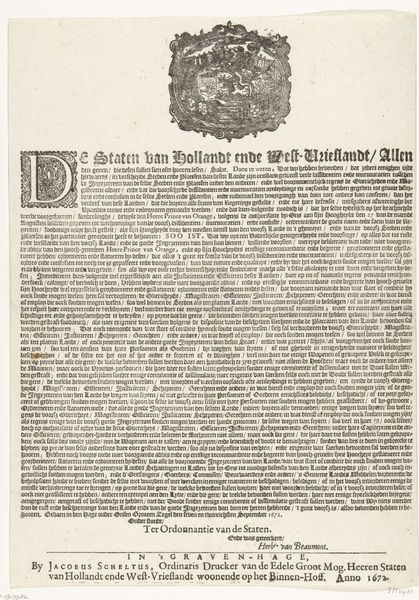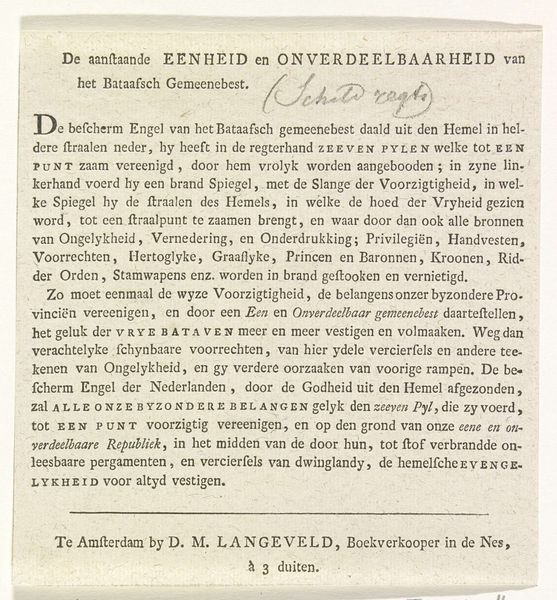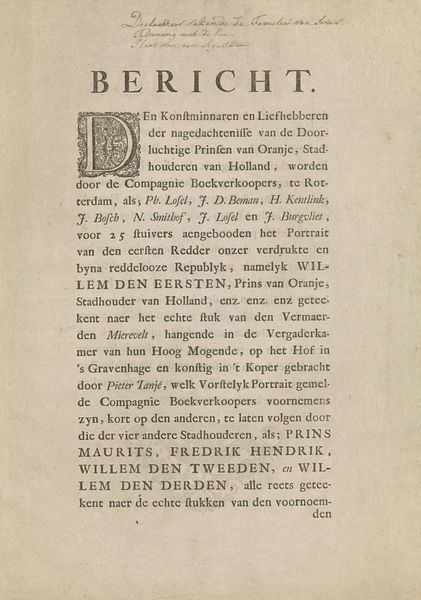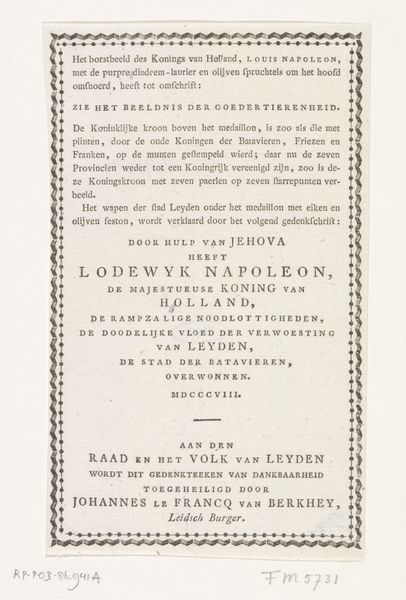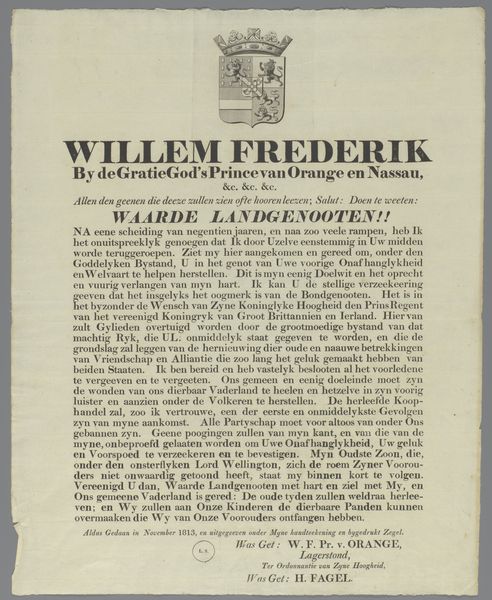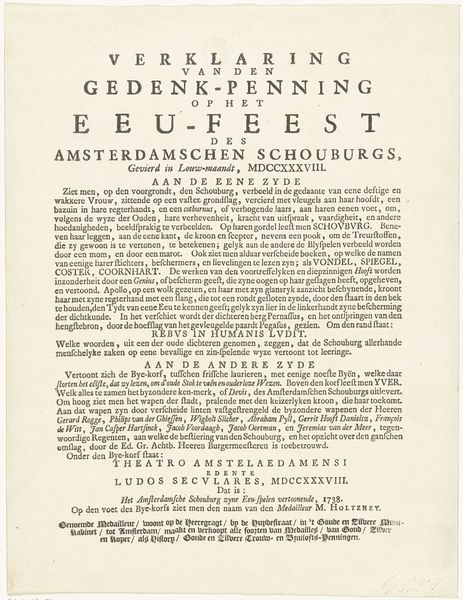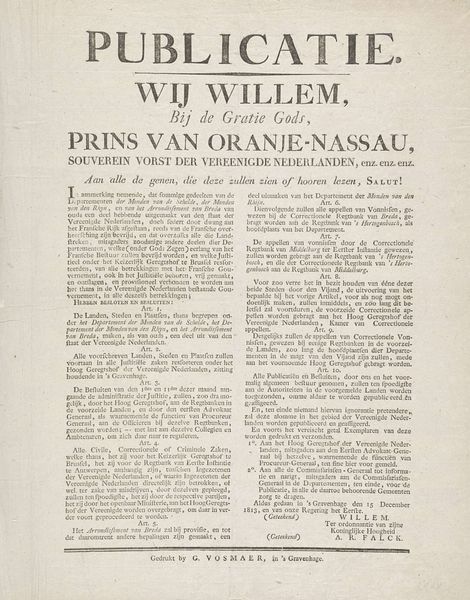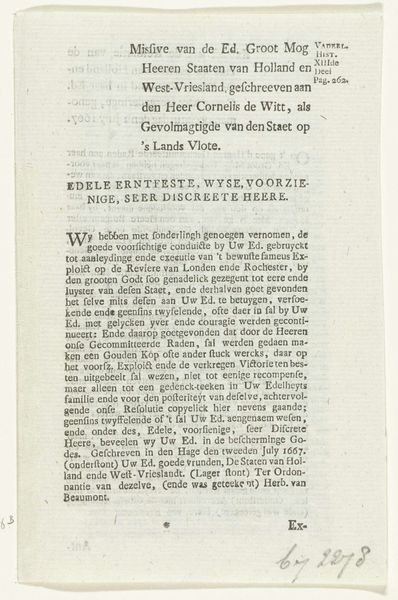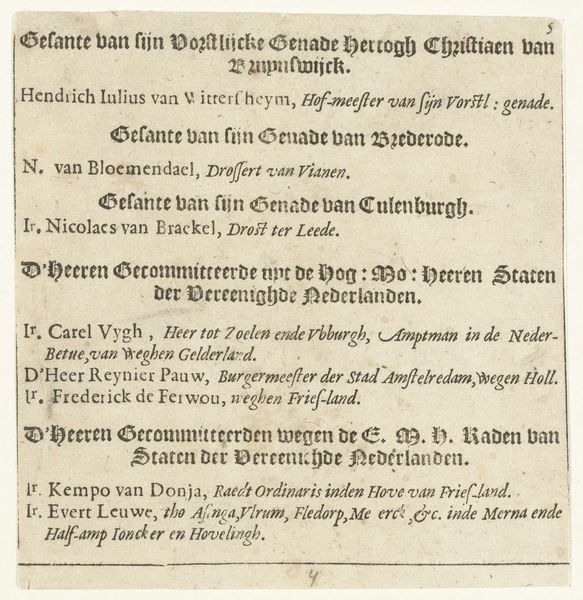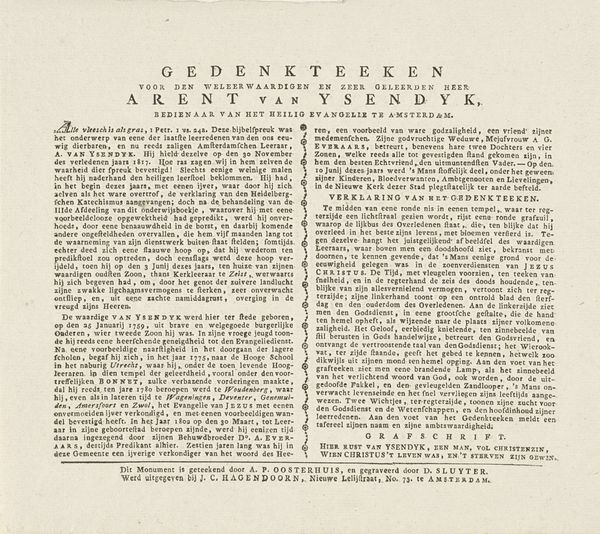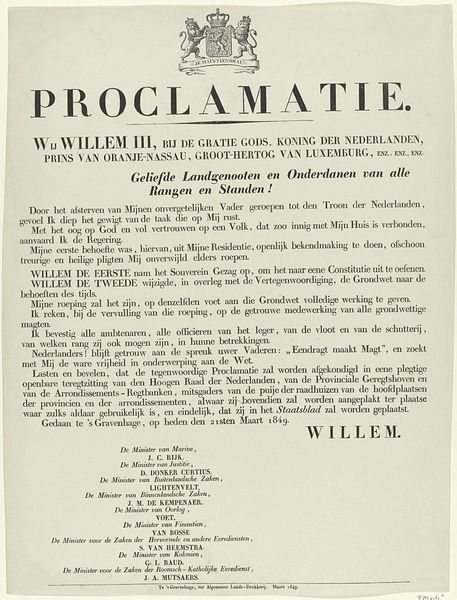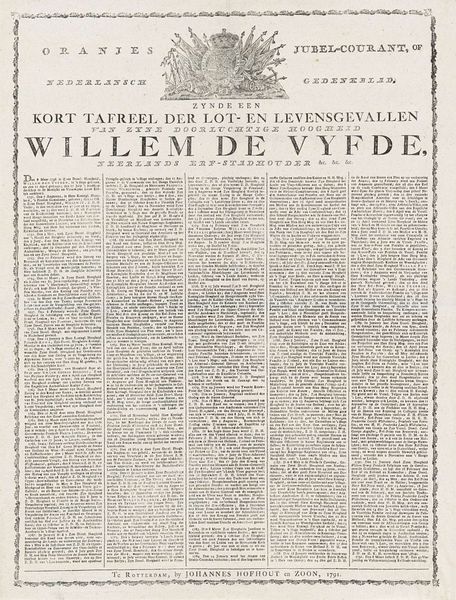
Verklaring der Kunstplaat, voorstellende de aankomst van zijne Majesteit (Onzen tegenwoordigen Souverein) Willem den I. Koning der Nederlanden (...) Te Scheveningen. Op den 30 November 1813 1814
0:00
0:00
evertmaaskamp
Rijksmuseum
graphic-art, print, paper, typography, engraving
#
graphic-art
#
neoclacissism
#
hand-lettering
# print
#
typeface
#
hand drawn type
#
hand lettering
#
paper
#
typography
#
stylized text
#
thick font
#
white font
#
handwritten font
#
classical type
#
engraving
#
small lettering
Dimensions: height 255 mm, width 386 mm
Copyright: Rijks Museum: Open Domain
This print, made by Evert Maaskamp, commemorates Willem I’s arrival at Scheveningen in November 1813. It marks the beginning of the Kingdom of the Netherlands after years of French occupation. It is interesting to consider the context in which this print was made and distributed. The House of Orange was the traditional ruling family of the Netherlands, but they had been exiled during the Napoleonic era. With Napoleon’s defeat, there was an opportunity for them to return. This image presents Willem as a national hero, welcomed by the people. But how much of this was staged? The text accompanying the image tells us that the arrival was organized by C. Pronk, suggesting careful management of the Prince's image and the event. To understand images like this, historians explore archives, newspapers, and personal papers. We examine the institutions that supported the creation of art, and ask critical questions about how power is represented. Art is never simply a reflection of reality; it is shaped by the social and political forces of its time.
Comments
No comments
Be the first to comment and join the conversation on the ultimate creative platform.
